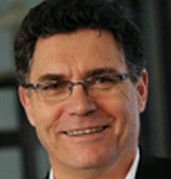
AS THE academic year begins at universities around the country, it is opportune to question what type of role academics can play in public life. The first and most obvious task is that academics have a huge responsibility to the "public" body of students (and their supporting families).
This is to give the best possible quality education to the next generation of leaders in business, professional and public life. Teaching, backed by solid research and continued curriculum renewal, is the core expectation of the taxpaying public and students. Drowning in administration, building a "pure" research career or augmenting income through consultation should never stand in the way of transformative teaching.
Universities are, further, rightly expected to inform and shape public discourse. Professors are mostly keen to distribute knowledge in the narrow domain of their disciplines. This distribution takes the form of research conferences and publications, read by "insiders" who constitute an exclusive elite. They obviously need to do this well, serving the advancement of science.
But there is a further task: to translate knowledge into forms of accessible public knowledge that can inform and shape perceptions and policies. Politicians are driven by ideology and normally even show a lack of common sense. As they drive around in siren-led vehicles, the real world tends to become a distant haze. There should therefore be a pact with academics as "back to reality" agents.
Academics should not be seen as enemies of the state, but rather as critical partners to advance the common good. Academics must be trusted to provide the cold facts and spell out the consequences of policies and practices from land reform to youth subsidies to assist the state in better quality government.
Where are the natural and social scientists when parliamentary committees debate policy? Where are the academic economists when notions of a "developmental state" and "nationalisation" are discussed? Where are the geologists and engineers when fracking or water security is on the table?
Where are the political scientists and public administration experts when service delivery, the role of provinces and corruption are addressed? Where are the linguists when policies on mother-tongue education is addressed? Where are our historians and sociologists to assist in (re)constructing a common South African identity or identities?
Apart from making a contribution to better quality political decisions, academics’ participation in public discourse should play a crucial role in defining and defending democracy. The state should also welcome this critical role and not easily dismiss academics as "secretly promoting an opposition agenda".
In this regard, one can mention that the lame-duck acceptance of state censorship and increasing controls of universities and public life cannot be left to dapper NGOs without resources or institutional resilience. Comments of a few lines during TV newscasts are just not adequate.
If the educated — who should know better — do not speak up, dire consequences for academic freedom (guaranteed in our constitution) and freedom in general await us. And we know this does not come suddenly: small steps close down space until you wake up one day to realise it is too late to claim back what you had, unless by revolution with its uncertain trajectory and outcome.
There is a special other "public", being those citizens of our nation who suffer as a result of poverty and exclusion from the public domain. Yes, universities argue that by doing their teaching and research well, the long-term effects are felt in society. This is true. But we simply do not have the time. There are just too many urgent human needs to be addressed here and now.
This is where imagination is required: universities should direct their research and in-service learning toward the weakest in society. A spirit of volunteerism should permeate our institutions so that over weekends and evenings and those long holidays our empty buildings are in service of poorer communities.
Our spare time must be spent on partnering with excluded people so that we see them as creators of knowledge and informers, and not objects that "need help".
But for this to happen we shall have to disentangle ourselves from the Western knowledge traditions and elite places we try to emulate.
What it means to be a university in (South) Africa is not as simple as it looks.
Naudé is the former head of the business school and currently deputy vice-chancellor: academic at the Nelson Mandela Metro University in Port Elizabeth. He writes in his personal capacity. This article is to inform and educate, not to advise.
By Piet Naudé
Source: Business Day
